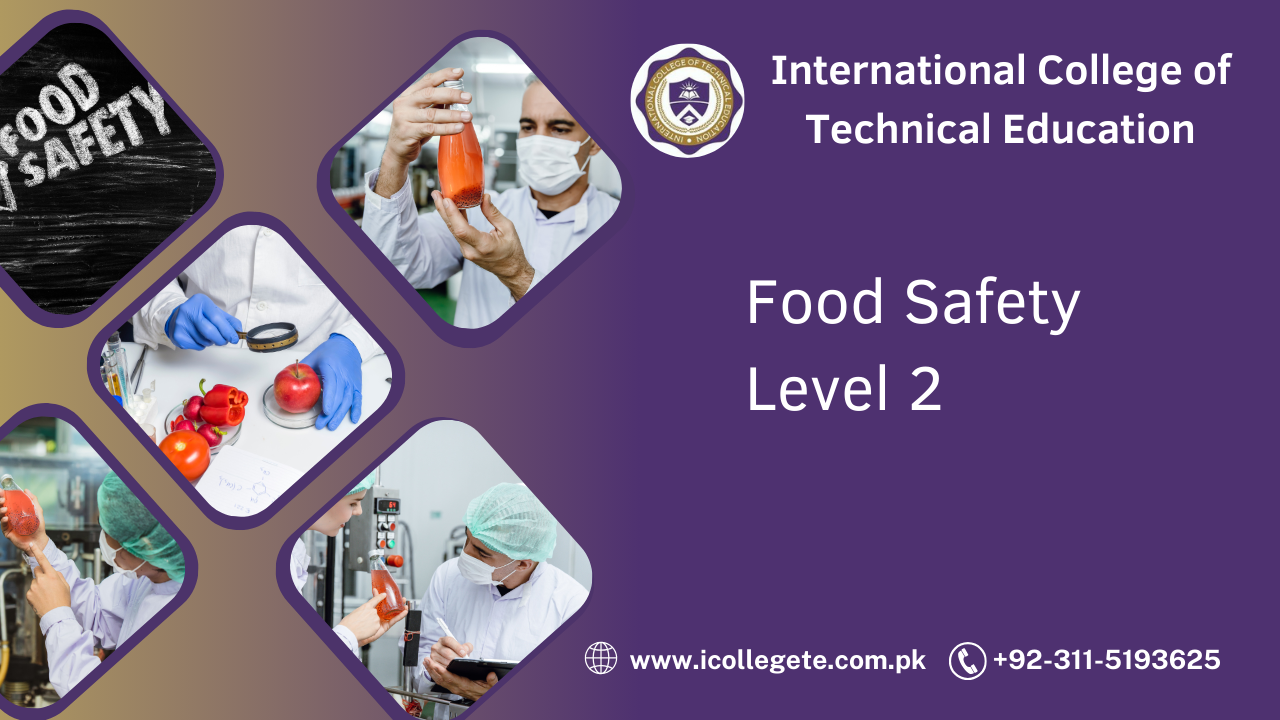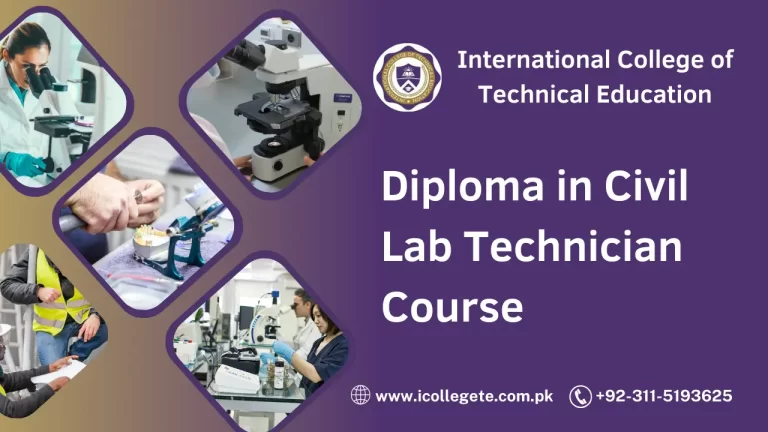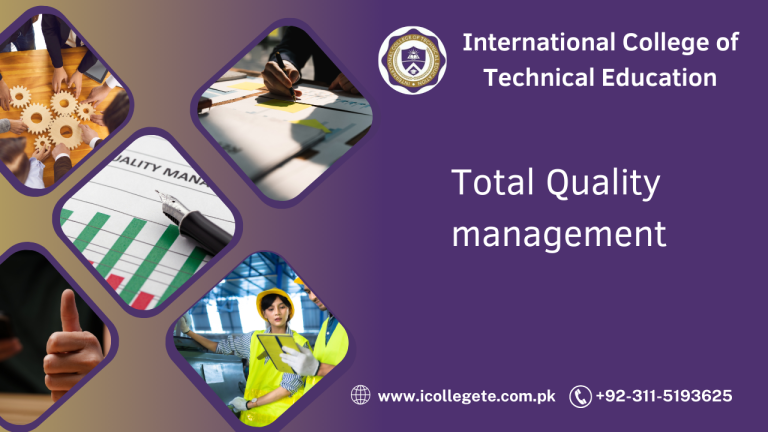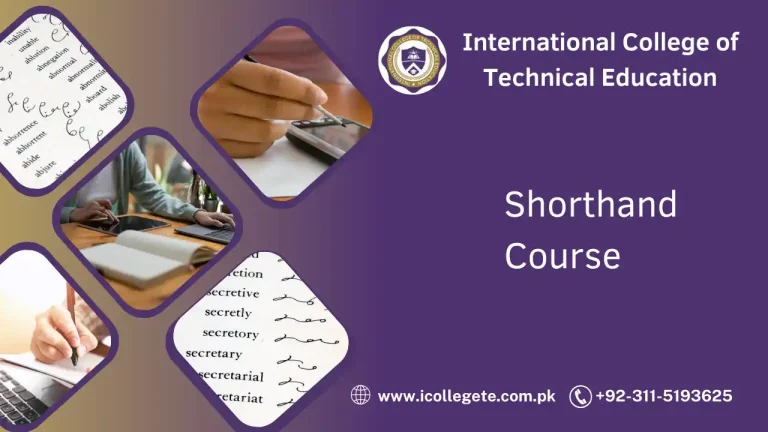Food safety is a critical concern in every food-related business. Whether it’s a restaurant, catering service, or food manufacturing company, ensuring the health and well-being of consumers relies on maintaining high food safety standards. The Food Safety Level 2 Course is designed to provide in-depth knowledge of food hygiene practices and regulations. It is an essential course for individuals who want to take on more responsibility in managing food safety, especially those in supervisory or management positions.
The Food Safety Level 2 Course in Lahore is a recognized certification that covers food safety principles and allows participants to play a key role in preventing foodborne illnesses and maintaining hygiene in the workplace. This course is ideal for those who want to enhance their understanding of food safety and contribute to creating a safer and healthier food environment.
The Food Safety Level 2 Course is designed to build on the foundational principles of food hygiene covered in Level 1. It provides a comprehensive understanding of food safety practices that are essential for food handlers, supervisors, and managers working in any food business. This course dives deeper into food safety management, hazard control, and risk reduction, providing practical knowledge that can be directly applied to everyday tasks in food service and handling environments.
The course aims to equip participants with the necessary skills to manage food safety risks, improve hygiene standards, and ensure compliance with local and international regulations. Completing the Food Safety Level 2 Course will not only enhance an individual’s knowledge of food hygiene but also open up more career opportunities in food safety management.
Course Overview
The Food Safety Level 2 Course in Lahore focuses on practical food safety management, offering participants the tools to apply food hygiene practices effectively. This course provides detailed information about controlling foodborne hazards, managing food safety systems, and ensuring that food safety regulations are met in food service or production environments.
The course is typically delivered over a series of sessions and is structured to cover all the essential aspects of food safety, including personal hygiene, food storage, and safe food preparation. The Food Safety Level 2 Course is designed for those who already have basic food hygiene knowledge and are looking to take their skills to the next level.
Study Units
The Food Safety Level 2 Course consists of several essential study units, each aimed at providing participants with the knowledge required to manage food safety effectively:
- Food Safety Legislation: An overview of the relevant food safety laws, regulations, and standards that food businesses must adhere to. This unit explains the legal framework governing food safety and the consequences of non-compliance.
- The Role of Food Handlers: The responsibilities of food handlers and the importance of personal hygiene in preventing contamination. This unit covers handwashing, proper attire, and the significance of cleanliness when handling food.
- Controlling Foodborne Hazards: Understanding different types of foodborne hazards, including physical, biological, and chemical hazards, and how to control and prevent them.
- Food Storage: The correct methods for storing food to prevent contamination and spoilage, including temperature control, proper shelving, and the separation of raw and cooked food.
- Food Preparation and Service: Guidelines for safe food preparation and service to avoid cross-contamination, maintain food at safe temperatures, and ensure hygiene during cooking and serving.
- Cleaning and Sanitizing: Effective cleaning and sanitizing techniques for food preparation areas, utensils, and equipment, as well as an overview of the chemicals and cleaning agents used to maintain hygiene.
- Pest Control and Waste Management: How to prevent pests from contaminating food and the importance of proper waste management in maintaining a clean and safe environment.
- Risk Assessment and Monitoring: How to identify risks within a food business and implement effective monitoring systems to ensure food safety standards are consistently met.
Learning Outcomes
Upon completion of the Food Safety Level 2 Course, participants will be able to:
- Understand food safety legislation and how to apply it in a food business setting.
- Identify foodborne hazards and control methods to prevent contamination.
- Practice proper food storage techniques to maintain food quality and safety.
- Ensure safe food handling practices during preparation, cooking, and service to prevent cross-contamination.
- Implement effective cleaning and sanitizing procedures to keep food environments hygienic.
- Understand pest control methods and manage waste effectively to avoid contamination.
- Conduct basic risk assessments and monitor food safety systems to ensure ongoing compliance.
- Lead by example in maintaining food safety standards and promote a culture of hygiene within the workplace.
Course Benefits
The Food Safety Level 2 Course provides several key benefits for both individuals and businesses:
- Enhanced Food Safety Knowledge: Participants will gain a deeper understanding of food safety practices and regulations, making them more effective in their roles.
- Career Advancement: The Level 2 certification is a recognized qualification in the food industry, which can open doors to supervisory or management positions in food safety.
- Regulatory Compliance: By understanding food safety laws and best practices, businesses can ensure compliance with food safety regulations, reducing the risk of fines or legal issues.
- Improved Workplace Hygiene: Employees trained in food safety practices are better equipped to maintain high standards of hygiene, reducing the likelihood of foodborne illnesses.
- Increased Consumer Confidence: Businesses that prioritize food safety and hygiene can build consumer trust and improve their reputation, leading to increased sales and customer satisfaction.
- Risk Reduction: Proper food safety practices help minimize the risk of accidents, contamination, and foodborne illnesses, contributing to a safer environment for both employees and customers.
- Professional Recognition: The Level 2 certification is globally recognized, providing individuals with the credentials to work in food safety management across various industries.
Who Is This Course For?
The Food Safety Level 2 Course is ideal for:
- Food Handlers and Supervisors: Individuals who directly handle food or manage food handling operations in a business, such as chefs, cooks, waitstaff, and food production workers.
- Food Safety Managers: Professionals responsible for overseeing food safety practices and ensuring compliance with relevant regulations.
- Restaurant and Catering Staff: Employees in restaurants, catering services, or other food-related businesses who need to improve their knowledge of food hygiene and safety practices.
- Food Retail Workers: Staff working in supermarkets, grocery stores, or food retail outlets who handle or sell food products.
- Food Business Owners: Entrepreneurs running small or large food businesses who want to ensure their operations comply with food safety standards and regulations.
- Individuals Interested in Food Safety: Anyone looking to pursue a career in food safety management or wishing to improve their knowledge of food safety in a professional environment.
Future Progression
After completing the Food Safety Level 2 Course, individuals have several pathways for further career development:
- Food Safety Level 3 Course: This advanced course is ideal for those in supervisory or managerial roles. It offers a more in-depth understanding of food safety management and prepares individuals for leadership roles in food safety.
- HACCP (Hazard Analysis and Critical Control Points): This internationally recognized certification focuses on hazard analysis and control points in food production processes, offering advanced skills in risk management for food safety.
- Advanced Food Hygiene Courses: There are numerous specialized courses in food hygiene that can be pursued, including topics such as allergen management, food safety for large-scale operations, and food safety audits.
- Food Safety Management Qualifications: Individuals can pursue food safety management certifications, such as the Food Safety Management for Catering (FSMC) or Food Safety Management for Manufacturing (FSM), which focus on managing food safety systems across larger food businesses.
- Health and Safety Management: For those looking to broaden their expertise, further qualifications in health and safety management can lead to roles overseeing broader occupational health and safety in the workplace.
- Quality Control and Assurance: For those interested in more technical roles, courses in quality control and assurance within the food industry can lead to positions in ensuring food product quality and safety.
The Food Safety Level 2 Course in Lahore provides a deeper and more comprehensive understanding of food safety management than Level 1. This course is perfect for individuals working in or aspiring to work in the food service industry or any environment where food is prepared, served, or sold. By completing this course, participants will not only enhance their understanding of food safety practices but also contribute to creating a safer food environment for consumers.
Whether you’re looking to improve your qualifications for career advancement or to ensure that your business meets essential food safety standards, the Food Safety Level 2 Course is the ideal starting point. Enroll today to gain the essential skills to make a positive impact on food safety in your workplace.







